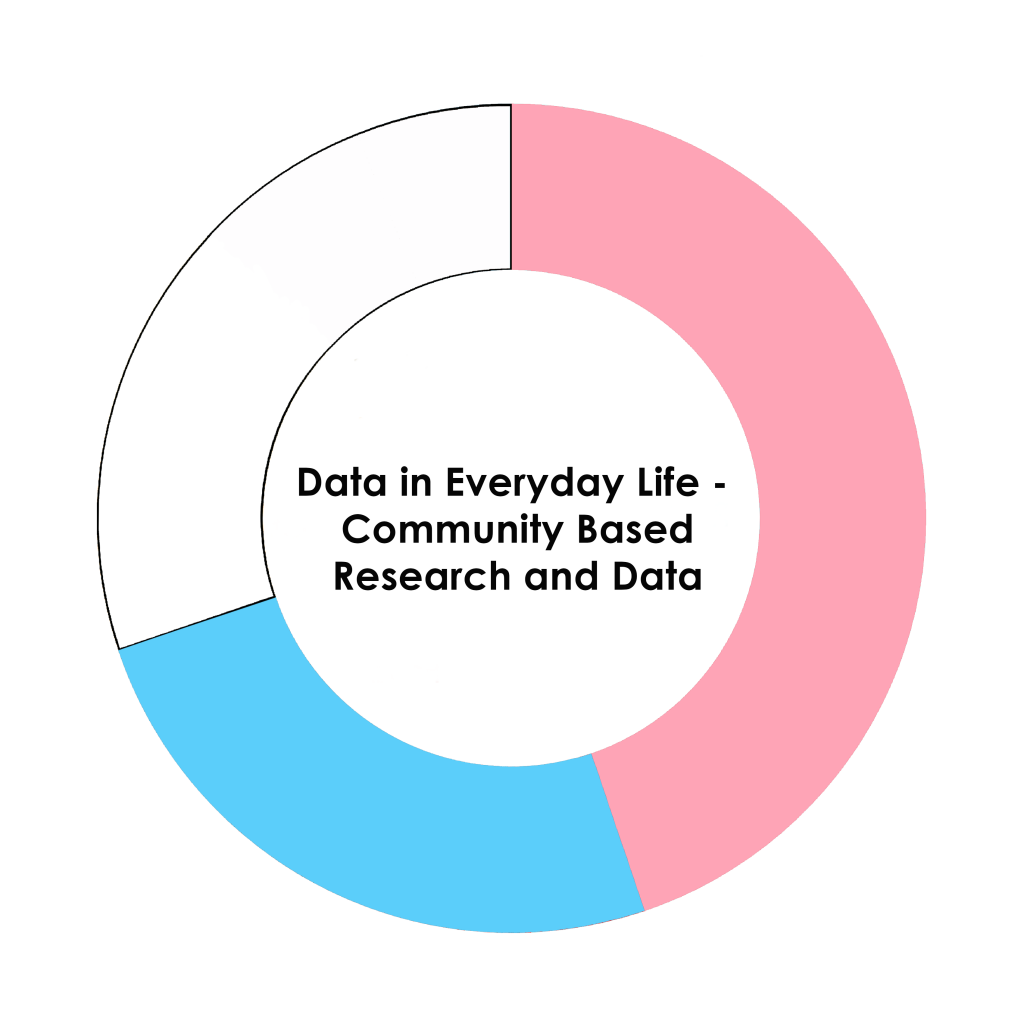– by Kaetlyn Phillips
Outline:
– What is community data
– Example (Trans Sask)
– Benefits of community data
Community Based Research, or Community Based Action Research, is a different approach from what we usually think of when we think of research. Instead of a Principle Investigator or a research team developing a hypothesis and working through the research cycle, community based research involves researchers and community stakeholders developing a research project together. This type of process grounds the research in the community by focusing their needs and through direct engagement with the community. The end research and data supports community directed action or change.
For example, last year the Trans Sask organization published their report “So They Know We’re Here.” The report clearly highlights how previous research had low response rates and did not fully engage with the community. Their study was grounded in community-based, decolonized research processes and the result was not only active community engagement, but also data that have previously not been collected or shared. The resulting report of the data highlights aspects of 2SLGBTQ+ people living in Saskatchewan that are rarely covered by the typical reports from Statistics Canada or other larger national reporting agencies. The “So They Know We’re Here” report covers the joys of being trans in Saskatchewan and the reasons why trans people stay in Saskatchewan. This type of reporting shows the reciprocal relationship that is a mainstay of community based research.
Another important highlight of community based research is the community should have control over how the data are stored and shared. Control over data is vital as most community research is done with equity deserving groups that historically have been subjects in research instead of equal partners with researchers. These ideas are similar to and overlap with research practices with Indigenous communities. When working with Indigenous communities, researchers are required to respect Indigenous data sovereignty and use local practices and national and international guidelines such as First Nations Principles of OCAP and the Global Indigenous Data Alliance CARE Principles. The storage and dissemination of data in community research may conflict with open research and data principles, but the community ultimately should have control over their data.
Author’s Note: Please consider supporting local 2SLGBTQIA+ organizations.

